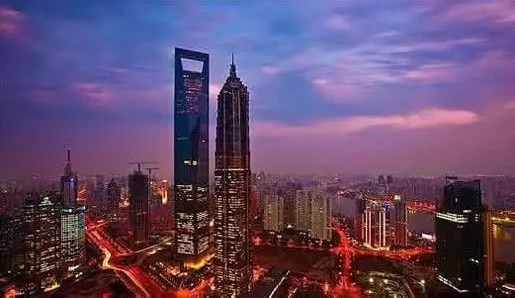导读
还在担忧在北上广没有车、没有房吗?本土出生的美国人正在离开大城市,“搬到人口在50万到100万之间的小城市”。最受青睐的是一些大学城。所以,别等了,赶快搬吧!

In 1990 I moved to East Berlin. I’d rented a room around the corner, as I now know, from the research physicist Angela Merkel. The flat had no phone, so to make calls I had to walk 10 minutes to a phone booth in West Berlin. Later, I got a flat in the west with a shared toilet on the communal staircase and no shower. I soon learnt the codes of Berlin student conversation: “Where do you live? Do you have a shower? Maybe I could come round and shower at yours one day?”
1990年,我搬到了东柏林。我现在知道,当时我租住的房间距离还是专职研究的物理学家安格拉•默克尔(Angela Merkel)很近。那间公寓没有电话,要打电话必须步行10分钟到西柏林的电话亭。后来,我搬到了西柏林的一间公寓,公共楼梯间有共用厕所,但没有淋浴设备。我很快学会了柏林学生的密语:“你住在哪儿?你有淋浴间吗?我哪天能过去拜访你,在你那儿洗个澡吗?”
Very little survives of that Berlin. Today it’s a swish metropolitan area of five million inhabitants, almost all of whom have in-house toilets. More people arrive every day to start tech companies or the vegetarian restaurants that service them. Berlin exemplifies the transformation of the rich world’s big cities this past quarter century. But that era may now be ending. London, New York and Tokyo have become not just overcrowded and overpriced, but also overstimulating. The star of the next 25 years could be the smaller city.
时至今日,那个柏林留存下来的东西很少。今天的柏林是一个时髦的大都会,有500万居民,几乎所有居民的住所都配有室内厕所。每天都有更多的人为了开办科技公司,或者为了开办服务科技公司的素食餐厅来到这里。过去这25年发达国家的大城市发生了巨大变化,柏林就是一个典型例子。但这样的时代或许正接近尾声。伦敦、纽约和东京不仅变得过于拥挤和昂贵,也变得“过度刺激”(overstimulating)。下一个25年的明星城市可能是规模较小的城市。
I’ll be careful here, because people have been announcing the demise of the megacity for a while now. It hasn’t happened yet. For each person who left London aged 32 whining that the place had become unliveable, there were always approximately 1.1 newcomers bidding for the vacant bedroom.
在这一点上,我很谨慎,因为人们宣扬大城市的末路已经有一段时间了。现在这种情况还没有发生。每当一个32岁的人抱怨伦敦已经不适合生活而选择离开时,相应地,总有大约1.1个新来的人在争抢空出来的房间。
However, if you keep raising the price of a thing, eventually customers start looking elsewhere. Big cities remain perfect places for older people to consume their wealth, but not for younger people to generate it. The academics Joel Kotkin and Michael Shires crunched the latest US census data for Forbes magazine and found that native-born Americans are leaving big cities and “moving to smaller places with between 500,000 and a million people”. The favourite destinations are cheap, pleasant college towns near large airports, such as Provo, Utah, home of Brigham Young University —which is situated in “the best metro area for jobs in 2017”. The area’s median home price has surged but is still only $258,000.
然而,如果你不断提价,最终消费者们会开始看向别处。对年纪较大的人来说,大城市依然是消费财富的好地方,但对那些要创造财富的年轻人来说就并非如此了。两位学者乔尔•科特金(Joel Kotkin)和迈克尔•夏尔斯(Michael Shires)为《福布斯》(Forbes)杂志分析了最新的美国人口普查数据,发现本土出生的美国人正在离开大城市,“搬到人口在50万到100万之间的小城市”。最受青睐的是那些物价低廉、环境宜人、靠近大型机场的大学城,比如杨百翰大学(Brigham Young University)的所在地、犹他州普罗沃市(Provo)——-它地处“2017年最适合就业的都市区”。普罗沃中等房产的价格已经大幅上升,但仍然只需25.8万美元就可购入。
These trends are international. Provo’s European equivalents are towns such as Bristol, Bordeaux and Luxembourg. Meanwhile, megacities across the rich world seem to have peaked. New York City’s government expects its population growth to slow from 16.6 per cent in the 1980-2010 period to 9.5 per cent from 2010 to 2040. The London Assembly’s planning committee has warned that the city is running out of space for newcomers. Offices for start-ups already cost more in London than anywhere else on earth. Tokyo — the world’s biggest city, with 38 million inhabitants — is forecast to start shrinking from 2020. Morgan Stanley predicts that China’s smaller cities will grow much quicker than the country’s first-tier cities upto 2030. Globally, the cities projected to expand fastest are small and medium-sized, says Nature magazine.
这些趋势是国际性的。欧洲类似普罗沃市的城镇有布里斯托尔(Bristol)、波尔多(Bordeaux)和卢森堡市(Luxembourg)等。同时,发达国家的大城市似乎已经饱和。纽约市政府预计,在2010-40年期间,该市人口增长速度将从1980-2010年期间的16.6%放缓到9.5%。伦敦议会规划委员会警告称,该市快没有空间容纳新来的人了。在伦敦,初创公司租用办公室的成本高于地球上其他任何地方。有3800万人口的世界最大城市东京据预测将从2020年开始收缩。摩根士丹利(Morgan Stanley)预测,从现在起到2030年,中国较小城市的增长速度将比本国一线城市快得多。《自然》(Nature)杂志预测,全球范围内发展最快的城市将是中小城市。
This is largely because the biggest places have become victims of their own success. Alien and unaffordable to most people, they are now objects of jealousy in their own country. Britain’s vote for Brexit will — deliberately or not —undermine booming cosmopolitan London. Meanwhile, the Trump administration is hunting down the undocumented immigrant cleaners, dish washers and nannies who keep American megacities humming.
很大程度上,这是因为大城市为自身的成功所累。对大多数人来说,这些城市很陌生,生活成本高得令人难以负担,是全国人民嫉妒的对象。英国退欧的决定将削弱——无论有意或无意——正在蓬勃发展的伦敦。同时,特朗普政府正在追捕从事清洁工、洗碗工和保姆工作的非法移民,正是这些人让美国的大城市充满生活气息。
Terrorism, too, hurts big cities. It’s not that the inhabitants are fleeing in fear. The morning after an attack, the buses are packed again. But precautions against terrorism disrupt city life: the delays when someone forgets their shopping on the Tube, the searches before you enter entertainment venues, the need to register a fortnight in advance if you want to attend any remotely sensitive event.
恐怖主义也在伤害大城市。这并不是说居民会因恐惧而逃离。在袭击发生的第二天早上,公交车再次坐得满满当当。但对恐怖主义的警惕会扰乱城市生活:有人把购买的东西忘在地铁上会造成延误,你在进入娱乐场所之前要被搜查,如果你想参加稍微有点敏感的活动,需要提前两周登记。
Then there’s a new, counter intuitive downside to big cities: they may actually have become too stimulating. From the 1980s,argues the urbanist Richard Florida, people in creative industries moved to big cities partly in order to meet each other. New York’s former mayor Michael Bloomberg argued: “A city that wants to attract creators must offer a fertile breeding ground for new ideas and innovations.”
然后,大城市还有一个新的、有违直觉的缺点:大城市可能已经变得过于刺激。城市规划专家理查德•佛罗里达(Richard Florida)主张,从上世纪80年代开始,创意产业的从业者搬到大城市在一定程度上是为了彼此交流。纽约前市长迈克尔•布隆伯格(Michael Bloomberg)声称:“一个城市想要吸引创新者,就必须为新想法和创新提供一片沃土。”
Each new coffee shop was its own little breeding ground. But the ecosystem worked so well that it got out of hand. The Berlin of 1990-91 was still pretty quiet: I spent a winter month mostly in bed,wearing a Russian soldier’s bear hat against the cold, only getting up to shove more coal into the oven. Today’s Berlin never sleeps. It’s so packed with creative venues, events and people — each of them armed with an overstimulating smartphone — that hardly anyone has the headspace to think any more.
每一间新咖啡店都是一块小小的土壤。但这种生态系统运作得太好,以至于已经失控。1990-91年的柏林非常安静:冬天的一个月里,我几乎都是在床上度过的,我戴着一顶俄罗斯军帽御寒,只在给炉子添煤的时候起床。今天的柏林是一座不夜城。这里充满了创意场所、活动和人——每个人都带着一部过度刺激的智能手机——以至于几乎任何人都很难有思考的空间。
I went to Berlin last month for a typically multinational ideas exchange organised by Swiss newspaper Neue Zürcher Zeitung.The star speaker, Stanford philosopher Hans Ulrich Gumbrecht, argued that the best place to have or develop ideas is the small town. It has to be a big enough place to run into smart people but quiet enough to allow you to escape back inside your own mind. Gumbrecht (probably echoing the writer Eric Weinerand his recent book The Geography of Genius) cited Socrates’ Athens, Renaissance Florence and today’s Stanford University as examples. Provo might be next.
上个月,我为了参加瑞士《新苏黎世报》(NZZ)组织的一场典型的国际性思想交流大会去了柏林。明星演讲者、斯坦福(Stanford)哲学家汉斯•乌尔里希•贡布雷希特(HansUlrich Gumbrecht)主张,最适合酝酿或产生思想的地方是小城镇。它必须是一个足够大、能遇到聪明人的地方,但也必须足够安静,能够让你退回自己的内心。贡布雷希特(可能与作家埃里克•韦纳(Eric Weiner)在近期著作《天才地理学》(The Geography of Genius)中提出的观点相呼应)举了苏格拉底(Socrates)所在的雅典、文艺复兴时期的佛罗伦萨(Florence),以及今天的斯坦福大学(Stanford University)为例。普罗沃可能是下一个。











